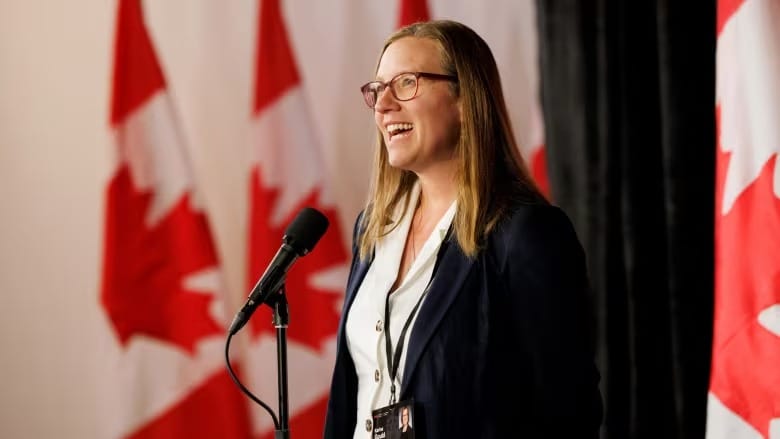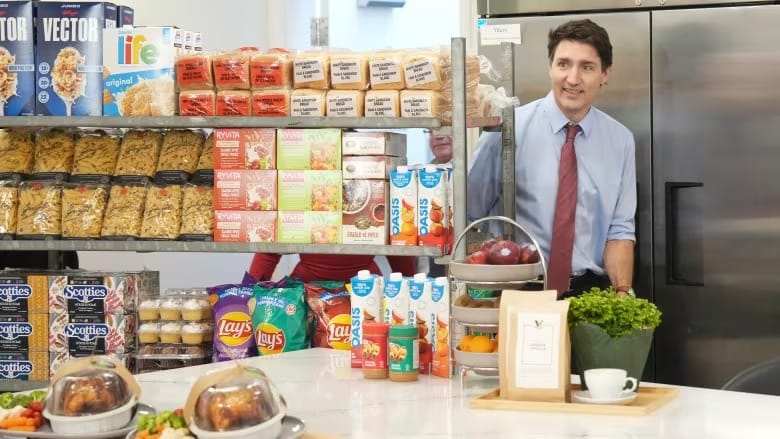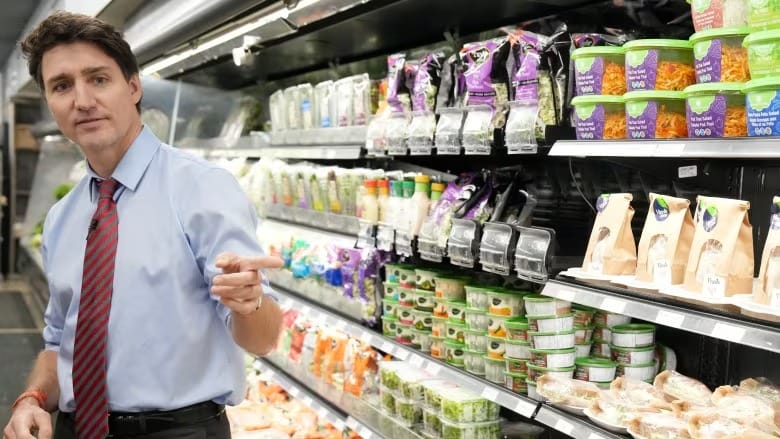Liberals confident deal with NDP to keep them in power will hold until June
If the agreement holds, there won't be a federal election until next summer at the earliest

Government House Leader Karina Gould expressed confidence on Tuesday that the supply-and-confidence agreement between the Liberal government and the NDP, which has kept the Liberals in power, will remain in effect until its scheduled end in June 2025.
This agreement, initially signed in March 2022, enables the government to avoid the risk of losing a confidence vote. If both parties adhere to the deal, the next federal election would not occur until at least next summer.
Although Canada’s fixed-date election law schedules the next vote for October 2025, the prime minister retains the authority to call an earlier election if desired.
"I'm quite confident that the agreement is strong and that we'll reach the end of June," Gould told reporters at a cabinet retreat in Halifax, where ministers are planning their strategy for the upcoming year. "The agreement was signed to last until the end of June, and that's the basis on which I'm operating."

However, NDP House Leader Peter Julian was less certain about the deal’s longevity.
"Exiting the agreement is always an option for Jagmeet Singh and the NDP," Julian stated to CBC News.
Gould’s optimism comes despite Singh’s recent displeasure with the government’s handling of a railway workers' dispute last week.
Following a day-long work stoppage, the Liberal government intervened, requiring the Teamsters union and CN and CPKC railways to resolve their issues through binding arbitration, facilitated by a mediator.
Singh criticized this move, arguing that it set an "anti-worker precedent."
The union, supported by the NDP, wanted to negotiate directly with the railways, claiming the government's intervention violated their Charter-protected right to collective bargaining. The Canadian Industrial Relations Board (CIRB) ruled in favor of the Liberals.
Labour Minister Steven MacKinnon justified the government’s action, stating that a prolonged work stoppage would have severely damaged the economy. Deputy Prime Minister Chrystia Freeland echoed this, warning that extended disruptions would be a "self-inflicted wound."
However, Singh argued that the government should have remained uninvolved.
"By repeatedly setting this anti-worker precedent, Justin Trudeau has signaled to CEOs that he’ll side with big corporations when they refuse to negotiate in good faith, effectively sacrificing workers," Singh said.

"Canada is led by a government that yields to corporate greed, resulting in labor disruptions and workers struggling for fair pay and safe working conditions. This approach benefits only the billionaires at the top," he added.
Before agreeing to the supply-and-confidence arrangement, the NDP secured several policy commitments from the Liberals in return for their support.
The government has since expanded the social safety net with new pharmacare and dental programs and passed "anti-scab" legislation, banning replacement workers during strikes.
"Every positive step taken under this agreement has been due to the NDP compelling the Liberals to act for the people. We will continue to advocate for more support for Canadians," Julian said.
The remaining tasks include introducing a "safe long-term care act," which the agreement mandates must ensure seniors receive the care they deserve, regardless of where they live.
The NDP has also pushed for electoral reforms, including extending "election day" to three days of voting, allowing voting at any polling station within a riding, and improving the mail-in ballot process, among other changes.
Gould acknowledged that there are still "some things left to advance, and of course, we're going to keep pushing in that direction."





